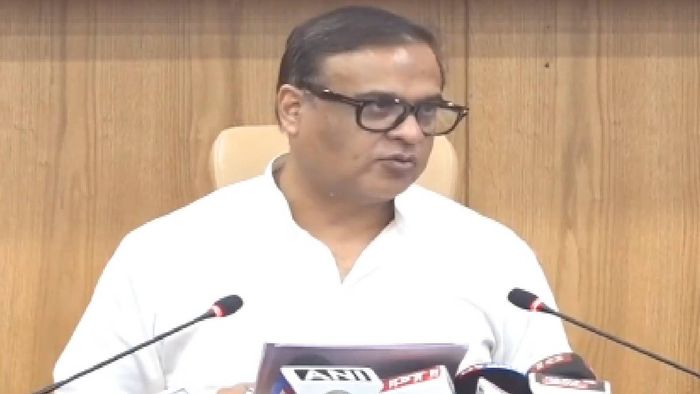Tribunal to handle encroachment cases in tribal belt areas: Assam CM
The Assam Cabinet, chaired by Chief Minister Himanta Biswa Sarma, convened on Sunday, November 23 evening at Janata Bhawan and approved a series of policy decisions aimed at transforming the state’s education, land, labour, and administrative sectors. The chief minister said that encroachments involving Tribal Belt and Tribal Block land can now be challenged before a Tribunal Judge, to be headed by a retired judge, ensuring stronger legal safeguards for tribal land rights

- Nov 23, 2025,
- Updated Nov 23, 2025, 11:10 PM IST
The Assam Cabinet, chaired by Chief Minister Himanta Biswa Sarma, convened on Sunday, November 23 evening at Janata Bhawan and approved a series of policy decisions aimed at transforming the state’s education, land, labour, and administrative sectors. The chief minister said that encroachments involving Tribal Belt and Tribal Block land can now be challenged before a Tribunal Judge, to be headed by a retired judge, ensuring stronger legal safeguards for tribal land rights
In a significant relief for employees of provincialised institutions, the Cabinet approved an annual 6 percent salary increment for Grade III and Grade IV staff. It also revised the transfer conditions for educators posted in remote or administratively altered districts such as Dhubri and South Salmara—reducing the mandatory service period to five years for women and seven for men, down from the previous 12-year requirement.
The government further amended the Provincialisation of Education Act, permitting institutions established up to 2006 to qualify for provincialisation. This move is expected to bring 15 colleges and several thousand schools under the provincialised framework, leading to regularisation of thousands of teaching posts based on existing permissions or No Objection Certificates.
The Cabinet sanctioned two major higher education initiatives. Azim Premji University is set to be established at Palashbari and is expected to accommodate 10,000 students, offering scholarships and fostering private sector investment. Additionally, NERIM has been approved to function as a private university, following a formal proposal submitted to the government.
In a historic welfare measure, the Cabinet approved the conversion of residential line lands inside tea estates into government land for allotment to tea garden workers. A total of 2,18,553 bighas will be distributed among 3,33,486 families, with a 20-year restriction on sale. Land transfers after this period will be permitted only within the tea community. The official distribution announcement will be made on November 25..
Based on the Justice Biplab Sharma Committee recommendations, the Cabinet approved the establishment of an Autonomous Council for the Karbi population residing in Bhuyam.
Other Key Decisions
Allocation of land for a Kendriya Vidyalaya at Jagiroad.
Approval of a Maintenance and Repair Hold Policy.
Incentives for investors with aviation projects exceeding ₹10,000 crore.
Introduction of a new Martyr Compensation Act.
Presentation of the Justice Tiwari Commission and Justice Mehta Committee reports to MLAs on November 25.
Special Cabinet session on November 26 to deliberate on granting Scheduled Tribe (ST) status to six communities.
Launching a fresh attack on the Opposition, Chief Minister Sarma remarked that the Congress leadership lacked political maturity. “They think these reforms will benefit us politically, but our aim is development and transparency. History cannot be hidden—doing so is a crime,” the Chief Minister said.
He added, “If earlier governments failed to act, I see no reason to repeat their mistakes. Our government is committed to delivering results.”